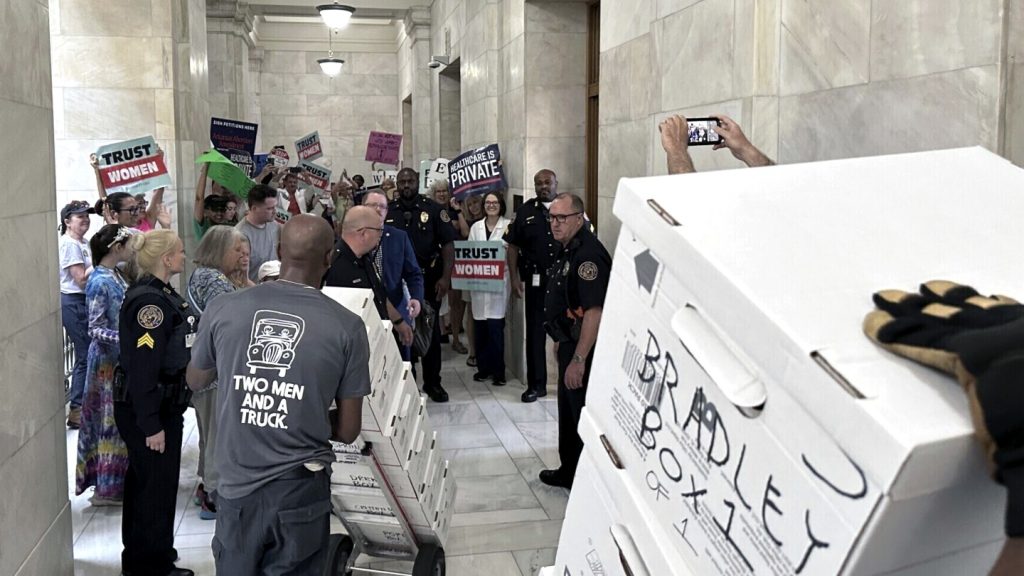A dispute has arisen in Arkansas over a proposed abortion-rights measure, with election officials reporting that the signatures collected by volunteers may fall short of the number needed to qualify for the ballot. The secretary of state’s office filed an initial tally with the state Supreme Court, indicating that the signatures gathered by volunteers alone would not meet the required threshold. This comes after the court ordered officials to only count signatures from volunteers, leading to a legal battle between organizers and the state.
Organizers of the abortion-rights measure submitted over 101,000 signatures in favor of the proposal to scale back Arkansas’ abortion ban by the July 5 deadline. However, state officials rejected the petitions, citing issues with documents related to the use of paid canvassers by the group. The debate centers around whether the signatures collected by paid canvassers should be included in the count to reach the required threshold for the proposal to move forward.
The Arkansas Supreme Court is currently considering whether to allow the lawsuit challenging the rejection of the signatures to proceed. It remains unclear what the next steps will be for the justices, as they have yet to rule on the state’s request to dismiss the lawsuit. The group behind the abortion-rights campaign, Arkansans for Limited Government, remains optimistic about the outcome and is awaiting further guidance from the court.
Attorney General Tim Griffin has insisted that the count of signatures demonstrated that the proposal cannot proceed due to insufficient qualifying signatures. The proposed amendment, if approved, would not make abortion a constitutional right but is seen as a test of support for abortion rights in Arkansas, a predominantly Republican state. Currently, Arkansas bans abortion at any time during a pregnancy except in cases where the woman’s life is endangered due to a medical emergency.
There is a disagreement between Arkansans for Limited Government and election officials regarding whether the petitions complied with a 2013 state law requiring campaigns to submit statements identifying each paid canvasser by name. The group argues that if the total number of signatures from paid canvassers is counted, the state can move forward with checking the validity of the signatures. With the U.S. Supreme Court’s recent decision on abortion rights, there has been a growing movement to have voters decide on the issue state by state.


